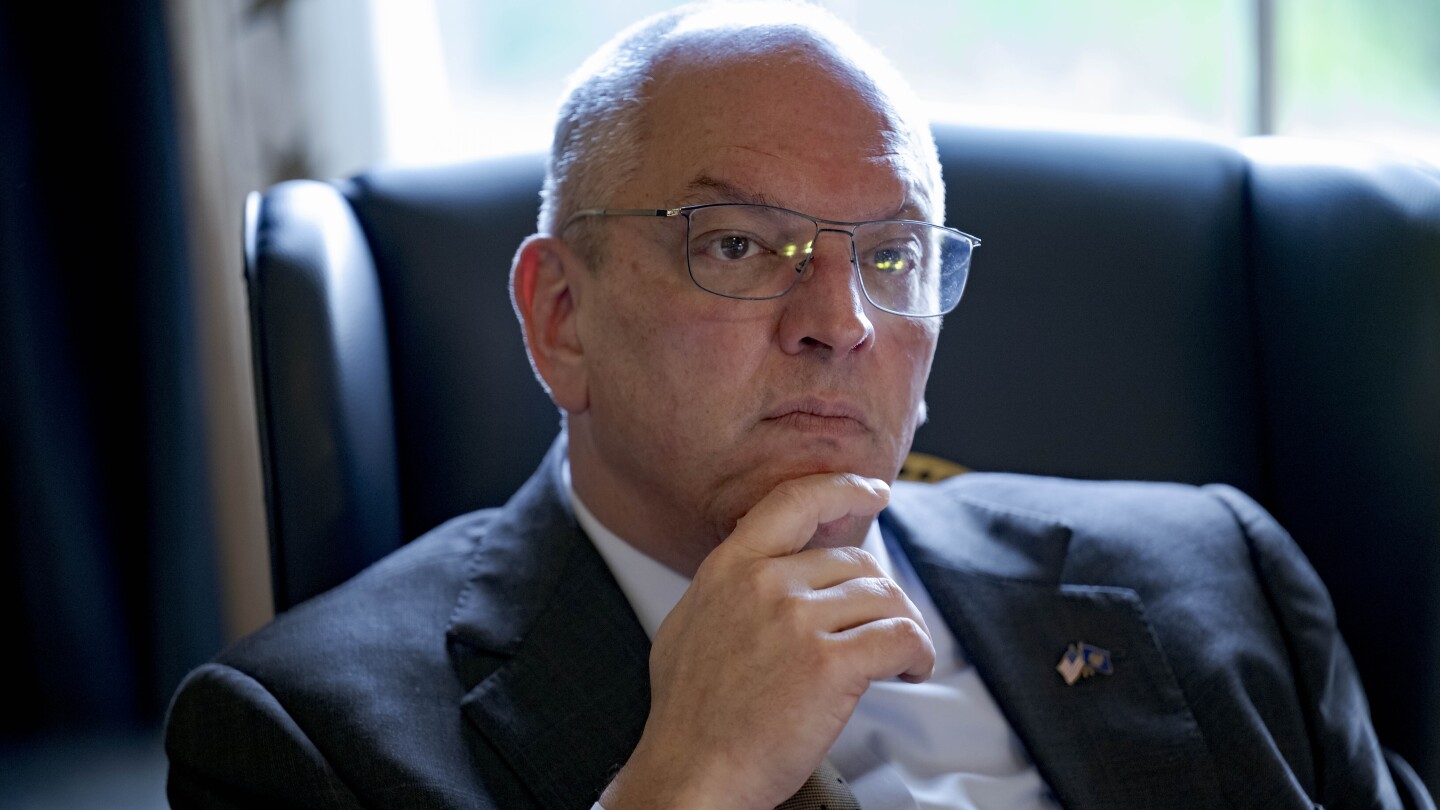BATON ROUGE, La. (AP) — It was 2012 and Louisiana was spiraling toward a historic budget crisis, with public colleges bracing for another round of cuts that campus leaders said were chasing away students and shuttering programs.
John Bel Edwards, then-a rural state representative, had had enough. He turned to a fellow lawmaker and said, “I’m running for governor.”
The Democrat went on to shock the country, defying near-universal predictions and winning Louisiana’s gubernatorial election in the reliably red state twice.
Edwards, currently the lone Democratic governor in the Deep South, has reached his final two days in office after eight years. His tenure has been marked by successes — expanding Medicaid, joining climate change initiatives, climbing out of a budget deficit and investing in education — while navigating historical crises and facing challenges from a GOP-dominated legislature.
A decade ago, Edwards, a lawyer from a 4,000-person town in eastern Louisiana, had little name recognition as he campaigned for governor with a bare-bones team. Campaign strategists say a number of factors led to the longshot candidate’s victories: A scandal-ridden Republican opponent, Edwards’ military background and religious conservatism that attracted GOP voters, and a strong Democratic turnout from Black voters.
Edwards’ first act as governor — which he has described as the “easiest big decision” he made in office — was to expand Medicaid. More than 440,000 working poor and nonelderly adults enrolled within the first budget year, and Louisiana’s uninsured rate dropped from 22.7% to 9.4%.
Edwards entered office in crisis mode, inheriting a financial mess that included more than a $1 billion budget shortfall. The state has vastly improved financially, with an estimated $2.2 billion in extra revenue during last year’s legislative session.
Financial woes weren’t the only crisis Edwards faced his first year: There were fatal floods, the shooting of Alton Sterling — a Black man killed by police — that triggered unrest and an ambush-style attack that left three officers dead.
During Edwards’ time in office there were around 50 state disaster declarations and 21 federal — from hurricanes, wildfires, threats to New Orleans’ drinking water supply to COVID-19. The West Point graduate says his Army experience influenced the way he managed crises, utilizing timely and accurate information to formulate a strategy and employ tactics.
During the start of the pandemic, Edwards and Republicans — including Gov.-elect Jeff Landry — came together in a bipartisan plea for people to do their part to avoid spreading the virus. It was a rare truce during a time of deep political divides nationwide.
Although a Democrat, Edwards’ stances on abortion and moderate pro-gun views appealed to some Republicans. Edwards said ahead of his reelection in 2019 former President Donald Trump urged the governor to switch parties.
Edwards remained a Democrat, and in return Trump traveled to Louisiana to rally against him. Edwards won reelection.
Working across the aisle with a GOP supermajority also proved challenging and, at times, unsuccessful. Edwards wielded his veto powers — at one point blocking a bill prohibiting transgender athletes from competing on girls’ sports teams. In a rarity, lawmakers overrode two of the governor’s vetoes — passing into law a ban on gender-affirming care for transgender minors and overturning Edwards’ blockage of a new congressional map that lacked a second majority-Black district.
Lawmakers also halted a slew of Edwards’ goals, including increasing the minimum age and eliminating the state’s death penalty.
Perhaps one of the biggest moments of scrutiny of Edwards came following the deadly arrest of Black motorist Ronald Greene in 2019. The legislature put together a committee probing the death and to see if the governor was complicit in a cover-up of troopers. However, lawmakers abandoned their work in June without issuing any finding or hearing from the governor, despite Edwards saying he was willing to testify.
Throughout his time in office, Edwards has maintained strong approval ratings among the public, continuously vowing to put people before politics.
In the Deep South state, which has had a front-row seat to the effects of climate change, Edwards put Louisiana on a path to reduce greenhouse gas emissions to net zero by 2050.
While Louisiana has tens of thousands of jobs tied to the oil and gas industry, efforts to expand Louisiana’s renewable energy industry have come to the forefront during Edwards’ administration.
Unable to run for reelection because of consecutive term limits, Edwards leaves office Monday and will join a New Orleans-based law firm where he will focus on bringing renewable energy deals to the state.
Edwards says he has “no intention” to run for political office in the future, but he hasn’t outright ruled it out. For now, the governor said he is optimistic about Louisiana’s future and ready to go home.

